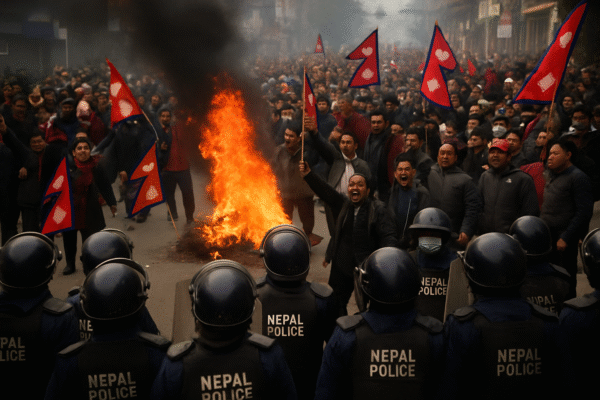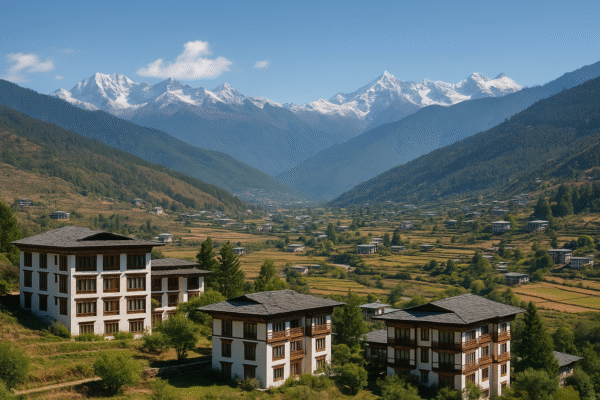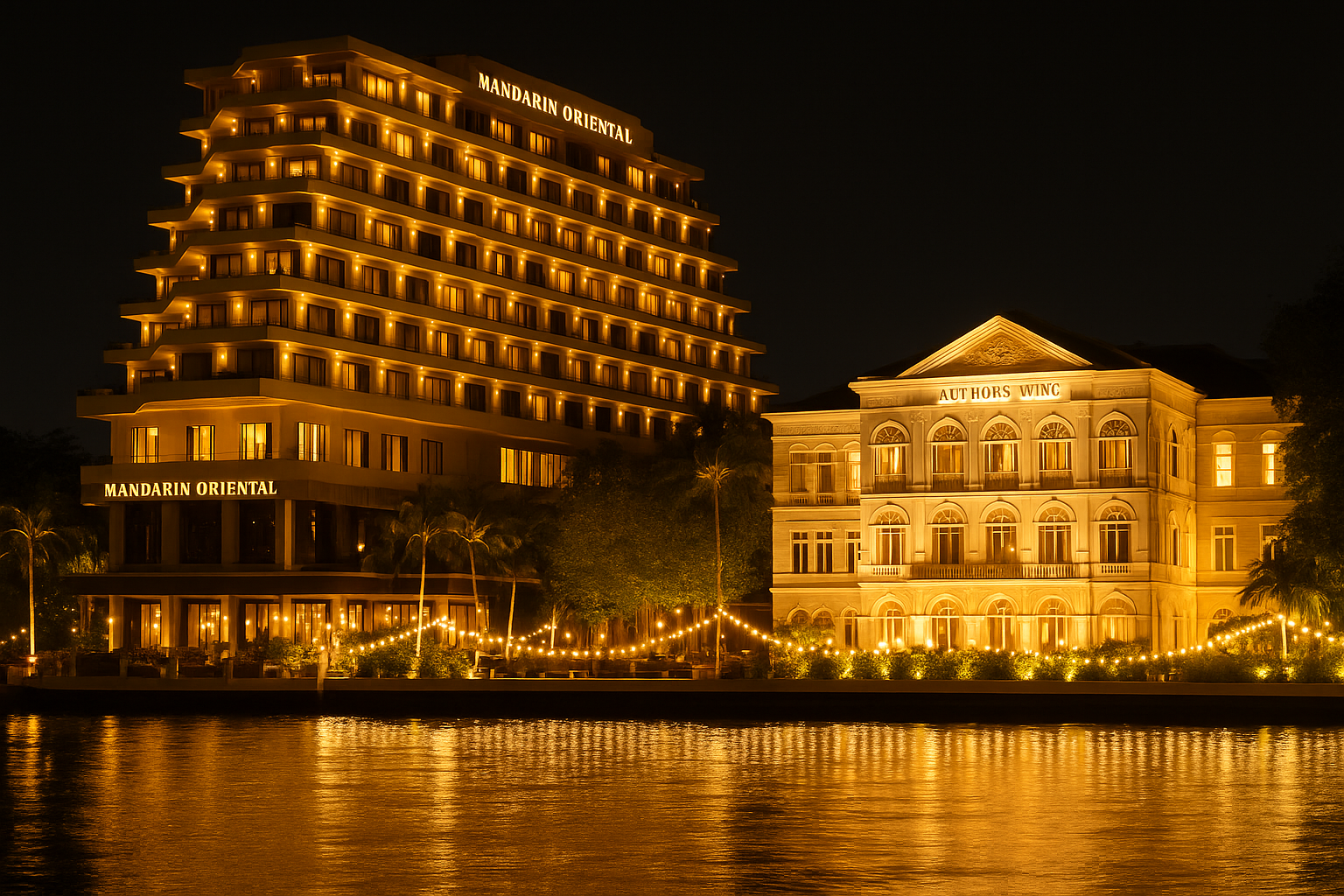Bhutan, long celebrated for its Himalayan beauty, rich culture, and commitment to Gross National Happiness (GNH), is now facing an unprecedented challenge in its hospitality sector. The country, once praised for carefully balancing tourism with environmental and cultural preservation, is grappling with a serious hotel oversupply crisis.
In recent years, the number of hotels in Bhutan has grown rapidly, driven by optimistic projections of booming tourist arrivals. Yet, with visitor numbers still far below pre-pandemic levels, occupancy rates have plummeted, leaving many hoteliers burdened with debt and uncertain futures. The crisis is raising urgent questions about sustainability, economic viability, and the future direction of Bhutan’s tourism strategy.
Oversupply in the Hospitality Sector
Between 2019 and 2025, Bhutan’s hotel sector experienced explosive growth. The number of hotels surged from around 160 in 2019 to more than 400 by 2025, reflecting investor confidence in Bhutan’s unique appeal as a high-value, low-volume destination. Developers, encouraged by government support and post-pandemic optimism, poured resources into expanding accommodation capacity.
But the reality has fallen short of expectations. Tourist arrivals dropped sharply, from over 315,000 visitors in 2019 to just 115,000 in 2025. The mismatch between supply and demand has created a situation where too many hotel beds are competing for too few guests. Popular destinations such as Thimphu, Paro, and Punakha are now struggling with under-occupied hotels, leaving many properties operating far below sustainable levels.
Mounting Financial Pressures
The oversupply of hotels has placed enormous financial strain on Bhutanese hoteliers. Many small and mid-sized establishments, often locally owned, took out high-interest loans to fund construction during the pandemic recovery period. Today, with occupancy rates alarmingly low, revenues are insufficient to cover operating costs such as utilities, staffing, and maintenance—let alone service outstanding debts.
As a result, many hoteliers face the grim reality of either downsizing operations, defaulting on loans, or shutting down entirely. The Hotel and Restaurant Association of Bhutan (HRAB) has voiced concerns on behalf of the industry, calling for government intervention to ease the financial burden. Their proposals include interest rate reductions, loan restructuring, and subsidies to reduce operational costs.
While such short-term relief measures may offer some respite, industry experts warn that without a broader strategic shift, the underlying problem of oversupply will persist.
Government Response: A Shift Toward Quality and Sustainability
The Bhutanese government has acknowledged the severity of the crisis and is working to implement new tourism policies that emphasize quality over quantity. These measures seek to realign the industry with Bhutan’s long-standing philosophy of “high-value, low-impact” tourism, a model that prioritizes sustainability over mass market growth.
Key policy initiatives include:
- Stricter hotel regulations to curb unchecked expansion and ensure only high-quality accommodations enter the market.
- Promotion of niche tourism sectors such as eco-tourism, wellness travel, and cultural tourism, aimed at attracting discerning visitors.
- Stronger marketing efforts targeting underrepresented regions, including Southeast Asia and the Middle East, to diversify visitor demographics.
- Digital campaigns and platforms to enhance Bhutan’s visibility in international markets and attract high-spending travelers.
By steering the industry toward more responsible and sustainable growth, Bhutan hopes to stabilize its hotel sector while preserving its environment and cultural heritage.
Sustainability as the Path Forward
Bhutan’s approach to tourism has always been closely tied to its commitment to sustainability and Gross National Happiness. The current hotel crisis highlights the importance of staying true to these values. Rapid, unregulated expansion has proven unsustainable, underscoring the need for careful planning and a long-term vision.
Sustainable tourism practices—such as limiting the number of visitors to avoid overcrowding, encouraging longer stays, and promoting community-based tourism—will play a critical role in shaping the future. Bhutan’s focus on high-value travelers, those willing to pay more for authentic, responsible experiences, will remain central to its strategy.
If successful, this approach will not only alleviate pressure on the environment but also ensure that tourism revenues are distributed more equitably among local communities.
Lessons for the Global Travel Industry
Bhutan’s current predicament serves as a cautionary tale for destinations worldwide. Over-investment in hospitality infrastructure without aligning capacity to actual demand can lead to damaging financial and environmental consequences. For Bhutan, which built its reputation on carefully managed tourism, the lesson is clear: growth must be balanced with sustainability, and expansion must always reflect realistic visitor projections.
The Road Ahead for Bhutan’s Hotel Sector
Despite the challenges, there is optimism that Bhutan can overcome this crisis. The country’s unique cultural heritage, unspoiled natural landscapes, and reputation for spiritual enrichment continue to make it one of the most sought-after destinations in Asia. With careful reforms, stronger marketing, and an emphasis on sustainability, Bhutan has the potential to restore balance to its tourism industry.
The government’s new policies, coupled with industry cooperation, will be vital in ensuring that hotels remain viable without compromising the values that define Bhutan’s identity. For hoteliers, adapting to changing market demands—whether through eco-friendly operations, partnerships with local communities, or innovative guest experiences—will be essential.
Bottom Line
Bhutan’s hotel oversupply crisis underscores the fragile balance between economic ambition and sustainable tourism. While the rapid expansion of hotels was driven by optimism for post-pandemic recovery, declining visitor numbers have left the industry facing serious financial strain.
With new government policies emphasizing quality, sustainability, and high-value tourism, Bhutan has the opportunity to turn this crisis into a turning point. If managed carefully, the nation can protect its cultural and natural treasures while creating a more resilient, profitable, and sustainable hospitality industry for generations to come.
For more travel news like this, keep reading Global Travel Wire















